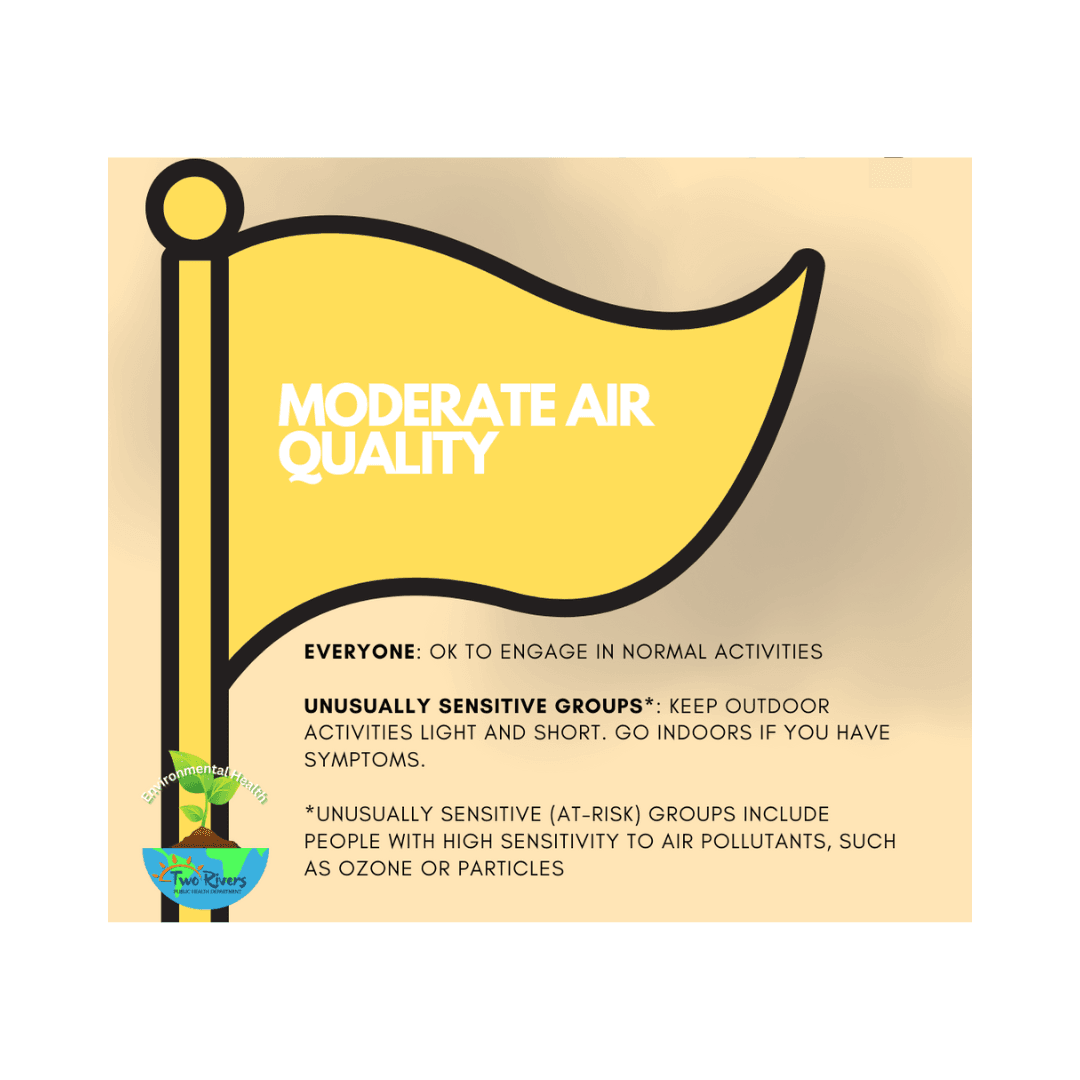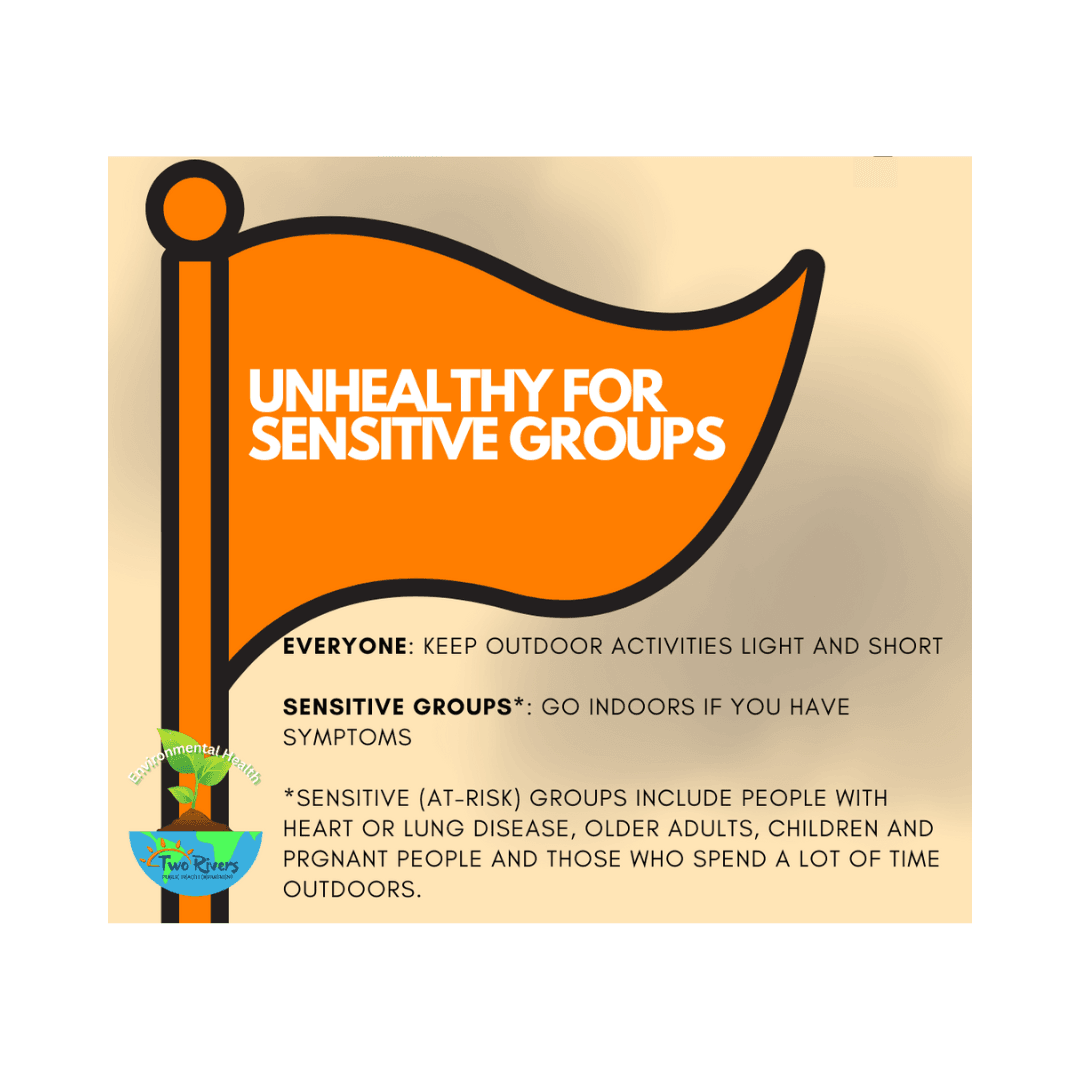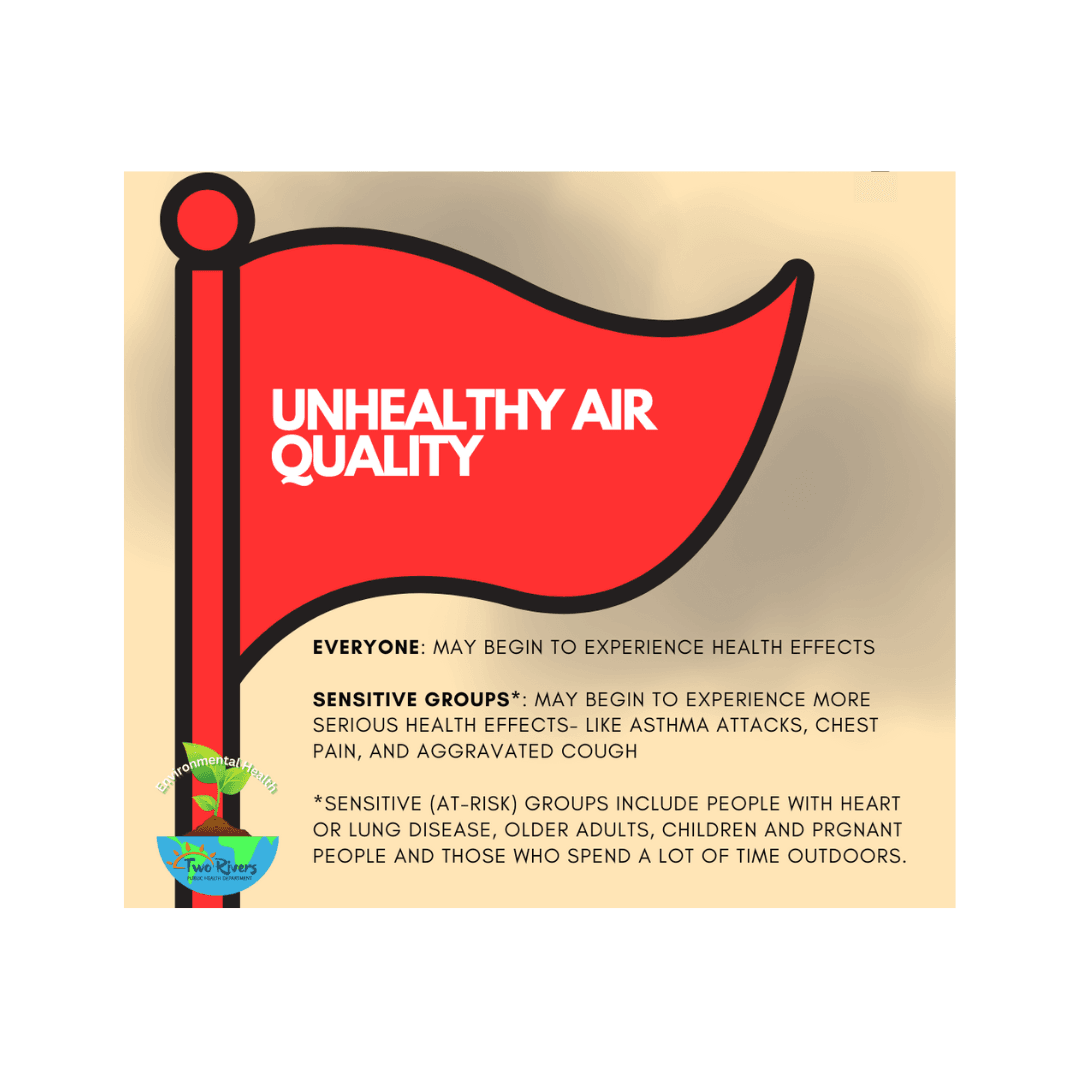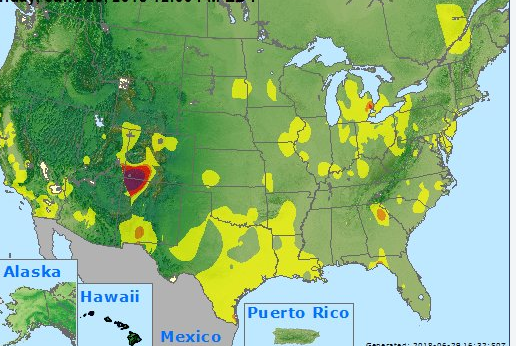Air Quality
Air pollution can cause serious health conditions and local air quality can affect our daily lives. Air quality can change every day, so the EPA developed the Air Quality Index. The Air Quality Index (AQI) measures the 5 most common air pollutants and how to avoid the effects of the pollutants. Common air pollutants and their health effects are:
Ozone- ground-level ozone, also known as smog, can cause irritation or a burning sensation in your throat, irritation in your lungs, and can cause reduced lung function causing your chest to feel tight.
Particle pollution- a mixture of solids and liquid droplets in the air, events like forest fires release high amounts of particle pollutants into the air and can aggravate a number of health conditions and deaths from heart or lung disease
Carbon Monoxide- odorless and colorless gas, exhaust from vehicles contribute to roughly 75% of all carbon monoxide emissions nationwide, carbon monoxide limits the amount of oxygen reaching the body's organs and tissues, causing serious illness
Sulfur Dioxide- colorless, reactive gas that is produced when sulfur containing fuels are burned, sulfur dioxide can cause an asthma attack in those who suffer from asthma, and can cause chest tightness and shortness of breath in those who do not have asthma
PurpleAir Monitors
What are PurpleAir monitors/what are the benefits?
- PurpleAir monitors are air sensors that provide real-time readings of air quality
- They take measurements every 10 minutes
- They measure particles in the air (sand, smoke, liquid droplets, etc)
- These monitors will be placed in each of our 7 county district areas to provide local air quality information that wouldn’t be possible if we relied on data from Lincoln/Omaha
Why is air monitoring important to health?
- Particle pollution can travel to your lungs and cause many symptoms:
- Coughing
- Shortness of breath
- Chest pain
- Long-term exposure is linked to:
- Worsened asthma
- Irregular heartbeat
- Decreased lung health
- Non-fatal heart attacks






